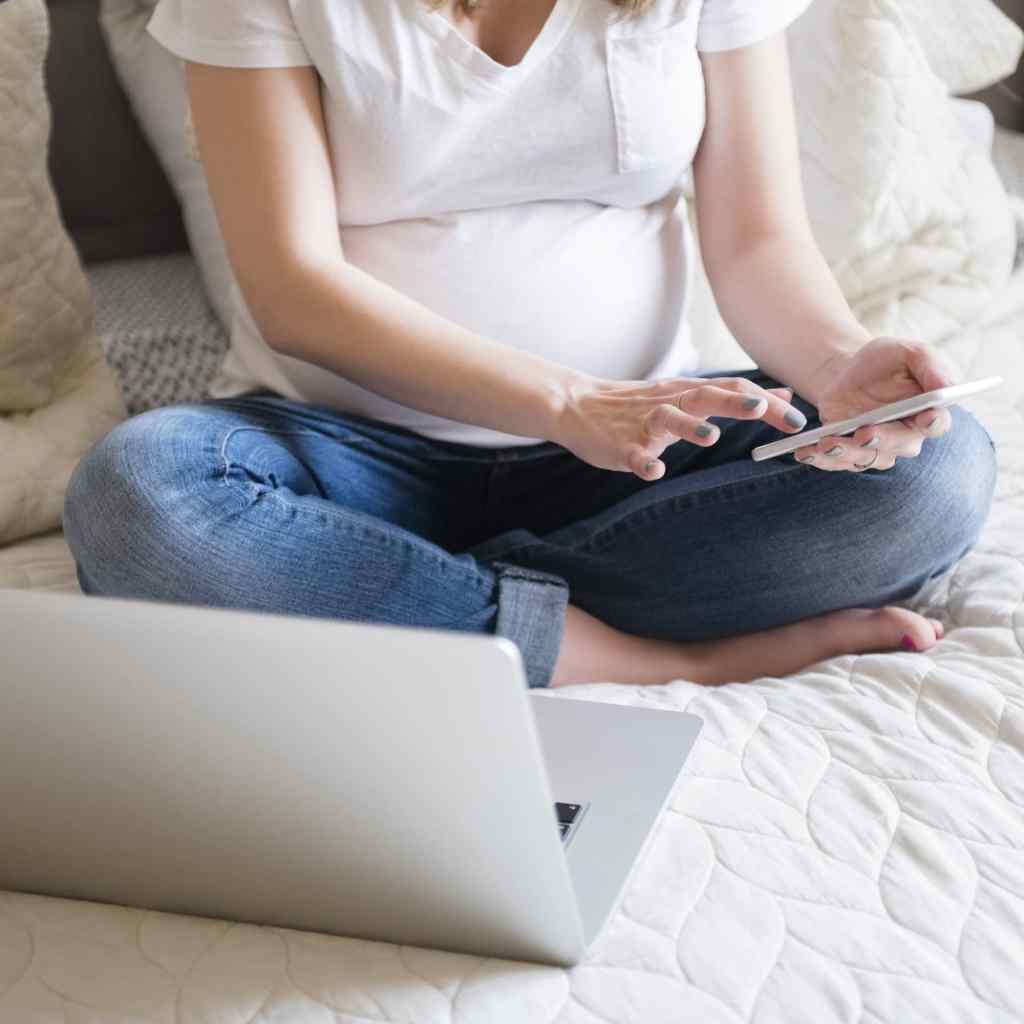The new coronavirus, COVID-19, is quickly making its way all over the world, leaving people everywhere wondering how to avoid getting infected – and what happens if they do. Pregnant people, especially, are at risk of COVID-19 because their bodies are immunocompromised. But before you panic, we talked to two doctors to find out just how pregnant people can be affected by the virus and what it means for their babies. Dr. Kecia Gaither, MD, MPH, FACOG, director of perinatal services and maternal fetal medicine at NYC Health + Hospitals/Lincoln, and Dr. Taraneh Shirazian, MD, founder of Mommy Matters, both weighed in on the latest virus to sweep the world and how pregnant people can protect themselves from contracting it.
Related: Very Few Babies and Kids Are Getting Sick From the Coronavirus, but Why?
Does the coronavirus affect pregnant people differently?
According to Dr. Gaither, “From what is known from this small amount of information, it is believed that pregnant people, along with other immunocompromised individuals, such as older individuals or those with chronic disease, may be more susceptible to the risk of disease acquisition associated morbidity and mortality in relation to the general population.” Basically what this means is that pregnant women are as at risk for the coronavirus as any one else whose immune system is currently compromised and should take precautions accordingly.
If I catch the coronavirus, will it make it harder to get pregnant?
Dr. Shirazian and Dr. Gaither noted that there’s not enough information to make a definitive call on this at this time. The COVID-19 virus, though similar to SARS and MERS, is still different enough and new enough that information on it is scarce. You should speak with your doctor if you have concerns.
How should I protect against the coronavirus if I’m pregnant?
Pregnant people should take the same precautions against COVID-19 that everyone else should be taking. Make sure you’re thoroughly washing your hands often and with soap. Also avoid anyone who is sick. Dr. Shirazian told POPSUGAR that pregnant people should “come into the hospital early on if symptoms arise, so that both the parent and fetus can be monitored appropriately.”
If I’m pregnant and I catch the coronavirus, will I give it to my unborn child?
Dr. Shirazian cited a very small study of nine pregnant women in Wuhan, China, who were all infected with COVID-19 and delivered babies in January this year. “Their outcomes were the same as those who were not pregnant, and no COVID-19 was found to have passed to their fetuses,” she told POPSUGAR. “But this was a very small sample of pregnant women. Reports from other coronaviruses such as SARS and MERS suggest that pregnant women could have a severe clinical course. Reporting on cases of COVID-19 needs to include information on pregnancy status, as well as maternal and fetal outcomes.”
Dr. Gaither added, “From the few cases reported out of China, the virus may have adverse effects on the newborns, causing issues such as preterm labor, fetal distress, respiratory distress, low platelets, abnormal liver function tests, and thrombocytopenia,” which is further proof that there haven’t been enough cases of pregnant women with COVID-19 yet to confidently say one way or another how the virus could affect a fetus. You should talk through any concerns with your doctor.
Can I pass the new coronavirus to my baby from breastfeeding?
Because COVID-19 is so new, there isn’t any concrete information on whether or not the virus can be transmitted through breast milk. Dr. Gaither pointed out that transmission “appears to occur via person to person, infected surfaces, or objects,” but she did not have an answer for if breast milk can be infected.
POPSUGAR aims to give you the most accurate and up-to-date information about the coronavirus, but details and recommendations about this pandemic may have changed since publication. For the latest information on COVID-19, please check out resources from the WHO, CDC, and local public health departments.

